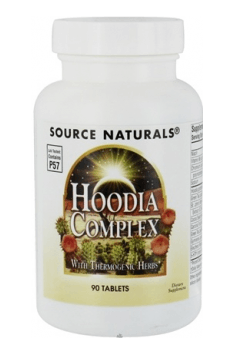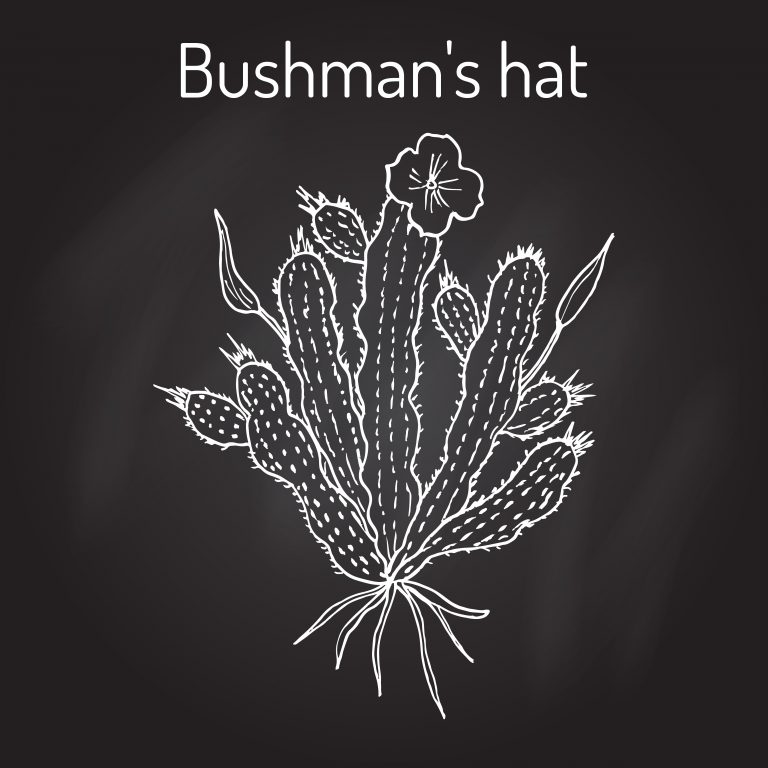Hoodia is a plant native to Africa. More specifically, this plant can be found in countries such as Angola or Botswana.
Origin of Hoodia
Hoodia is a succulent. In short, it’s a plant that does not need much to survive and for its development. Hoodia is mainly found in the desert, where there is little water. Hoodia was used by indigenous Africans. They chewed the leaves of the plant, and according to them, hoodia has helped with metabolism. It also has medicinal properties, such as curing minor infections.
Hoodia itself is not for weight loss. However, dietary supplements are produced which are based on hoodia. Hoodia extract is used to make weight loss supplements. The plant was first discovered in the 18th century, but was more closely researched in the 30's of last century. That’s when a group of scientists were researching the San people's culture, people living in Africa.
The second time hoodia was researched in the 70s of the twentieth century. When the scientists described the alleged weight loss properties of it.
Mysterious ingredients of hoodia P57
During this research on the plant, scientists have extracted the ingredients of hoodia which bears the name P57. This ingredient, or chemical compound, fools our brains into thinking we’re not hungry. Simply put, even if you have an empty stomach, your brain still does not get the message that you are hungry. All in all it's a great deal. You can go to the gym and training hungry, and your brain goes on to tell you that you still don’t want to eat.
P57 supresses hunger. That means you eat less, you will get less calories, so you will lose weight.
- WARNING!
There are many varieties of hoodia. This P57 ingredient is only one type of gordonii hoodia.
In 2011 hoodia was featured in the prestigious American Journal of Clinical Nutrition.
The article was the result of scientific research on hoodia. The experiment lasted 14 days. And almost 50 women participated in it. Hoodia was administered to one group of women. The second group of women received placebo. At that time, women could eat normally. Without a special diet.
After all the studies, women who used hoodia did not lose more weight than those who used placebo.
The question is, what kind of tests they ran, since only 50 women were involved. And during weight loss women were not on any diet or did any sports. It's like if a person with a cold tells you that you just need to go to a pharmacy, and you will recover. No, it doesn’t work that way. You have to go to a pharmacy, buy medicine, and then have good nutrition, rest and medication. It will then heal faster.
However, those studies focused on how hoodia helps us lose weight.
During these studies, people who use hoodia had some side effects, such as:
- Vomiting.
- Raised blood pressure.
- Elevated bilirubin levels. Elevated pulse
Some women who used hoodia experienced skin allergies.
All this made the US Food and Drug Administration, or the FDA, not accept hoodia as a supplement.
That’s not all. Hoodia patent law began to go from hand to hand and was sold to a few other companies. Finally, after a few years, one of the largest corporations withdrew from hoodia research, and its launch have been suspended. Many dieters warn against using hoodia. As a nutritionist, they point out that it is very difficult to get a weight loss supplement that will contain 100% of the plant.
Watch out for weight loss diet supplements containing hoodia. Many of them have no hoodia or only contain trace amounts of it. This is because of a simple reason. Hoodia is a plant under protection, and any attempt to gather it, process it and extract it, involves special permission. Therefore, according to dieticians, these weight loss supplements, which allegedly contain hoodia, usually include a replacement. This replacement is cheaper, and it’s obtained in chemical laboratories. However, it has nothing to do with the natural plant.
This is why you have to be careful when buying the supplement, because of such replacements.
Cheaper alternatives to hoodia

It’s not a very well-known replacement, we don’t know under what conditions it’s acquired, or what it’s made of. It may turn out to be a chemical substitute for hoodia, contain heavy metals or other impurities.
And thus using such product we will poison our body it’s important during weight loss to clean the body thoroughly at the very beginning.
It will be difficult to lose weight if your body contains all these bad toxins, or if you contaminate the body with an unknown supplement or slimming pills. Then, the body instead of losing weight and burning fat, will try to cleanse the body from toxins, not burn fat.
I can also advise you to be careful about what people post on the internet forums. Many posted reviews may not be consistent with reality, or be a marketing company. They advertise by praising it on online forums. They want to make the product popular and willingly bought.
Contraindications for Hoodia
Due to its slimming properties, hoodia is not for everyone. Products that include this ingredient, or its extract, should not be taken by people suffering from high pressure, people with diabetes, people who have problems with appetite, people suffering from bulimia, or people who have trouble with blood clotting.
There is no clear scientific study that would indicate that hoodia helps us lose weight, but on the other hand, there is no one supplement or medication that will do that.
Interesting fact about hoodia
Although hoodia is just a plant, certainly none of us would want to grow this plant at home for a simple reason: this plant stinks. The smell’s very bad and very potent. Apparently hoodia gives off the smell of rotten meat.
Since hoodia has the smell of rotten meat, it’s no wonder that after taking it we don’t have any appetite. Who would want to eat anything after eating stinky meat?







4 Comments